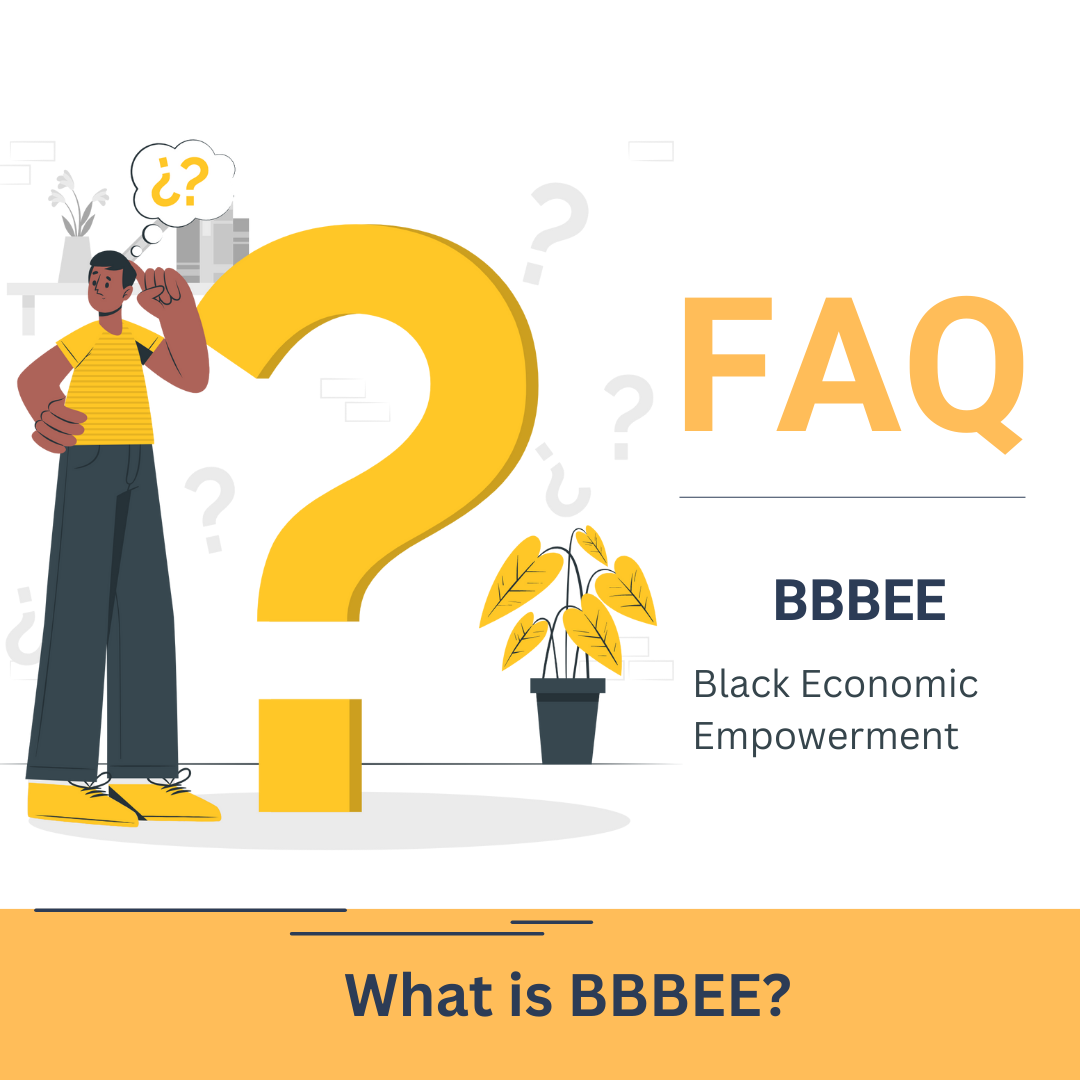
Unpacking the BBBEE Affidavit and Certificate for SMME Contractors
In South Africa, transformation and empowerment are at the forefront of business development. To foster equality and economic growth, the government has introduced the Broad-Based Black Economic Empowerment (BBBEE) framework. For Small, Medium, and Micro-sized Enterprises (SMME) contractors, understanding the BBBEE Affidavit and Certificate is vital. In this blog post, we'll delve into what these documents are, why they matter to SMME contractors, and how to navigate the complexities of BBBEE compliance.
Decoding BBBEE and Its Significance
Broad-Based Black Economic Empowerment (BBBEE) is a comprehensive set of policies and legislation designed to redress the imbalances created by apartheid and promote economic inclusion for previously disadvantaged individuals and groups. The BBBEE framework covers various aspects of business operations, including ownership, management, employment, procurement, and skills development.
BBBEE for SMME Contractors
As an SMME contractor in South Africa, your engagement with BBBEE compliance primarily revolves around procurement and enterprise development. Here's why BBBEE compliance matters for SMME contractors:
1. Access to Contracts: Many public and private-sector organizations consider BBBEE compliance when awarding contracts. Having a good BBBEE rating can make your business more competitive and eligible for a broader range of projects.
2. Partnerships and Collaborations: Collaborating with larger enterprises that require BBBEE compliance can expand your business opportunities and open doors to new markets.
3. Market Perception: Demonstrating your commitment to BBBEE compliance can enhance your reputation in the market, attract clients and partners, and boost customer loyalty.
4. Legal Requirement: Some industries and government contracts mandate a minimum BBBEE compliance level. Failing to meet these requirements can result in disqualification from tenders and contracts.
BBBEE Affidavit and Certificate
1. BBBEE Affidavit: This is a sworn statement that your business submits to declare its BBBEE status. It is a self-assessment of your compliance and is often used for verification purposes, especially for businesses with an annual turnover below a certain threshold (e.g., R10 million).
2. BBBEE Certificate: The BBBEE Certificate is issued by a BBBEE verification agency or an accredited auditor after a thorough assessment of your business's BBBEE compliance. This certificate is recognized by both public and private-sector entities as proof of your compliance status.
BBBEE Elements and Scorecard
BBBEE compliance is evaluated using a scorecard system comprising various elements. The scorecard measures your business's performance in each element and assigns points accordingly. These elements typically include:
1. Ownership: Reflects the percentage of the business owned by black individuals or entities.
2. Management Control: Assesses the representation of black individuals in management positions within the company.
3. Skills Development: Evaluates your investment in training and development for black employees.
4. Enterprise and Supplier Development: Measures your efforts to support black-owned businesses and enterprises.
5. Socio-Economic Development: Focuses on your contributions to initiatives that benefit black communities and individuals.
6. Preferential Procurement: Examines your procurement practices with a focus on purchasing goods and services from black-owned or BBBEE-compliant suppliers.
The scorecard assigns points to each element, and the total score determines your BBBEE level, which ranges from Level 1 (highest) to Level 8 (lowest). Higher levels indicate greater compliance and empowerment efforts.
BBBEE Affidavit vs. Certificate
SMME contractors with an annual turnover below R10 million can choose to submit a BBBEE Affidavit as an alternative to obtaining a BBBEE Certificate. The BBBEE Affidavit is a simplified and cost-effective way for smaller businesses to declare their compliance status. However, it may have limitations, as some larger clients and entities may require the credibility of a BBBEE Certificate from verified entities.
Obtaining a BBBEE Certificate
To obtain a BBBEE Certificate, follow these steps:
1. Preparation: Gather all necessary documentation, including financial statements, ownership details, and records of BBBEE initiatives and contributions.
2. Select a Verification Agency: Choose a BBBEE verification agency or accredited auditor to assess your compliance. Ensure they are recognized and accredited by a relevant industry authority.
3. Verification Process: The verification agency will conduct an assessment, which may include interviews, document reviews, and site visits to verify your compliance with the BBBEE scorecard elements.
4. Reporting and Issuance: After the assessment, the verification agency will provide a verification report and issue a BBBEE Certificate reflecting your compliance level.
5. Renewal: BBBEE Certificates are typically valid for a year. You must renew your certification annually to maintain your compliance status.
Conclusion
BBBEE compliance is a critical aspect of business operations for SMME contractors in South Africa. It not only opens doors to new opportunities but also demonstrates your commitment to economic transformation and empowerment. Whether you choose to submit a BBBEE Affidavit or obtain a BBBEE Certificate, understanding the BBBEE framework and striving for compliance can position your business for success in a competitive market.
Embrace BBBEE as an integral part of your business strategy, and let it be a testament to your dedication to inclusivity, empowerment, and growth as an SMME contractor.





